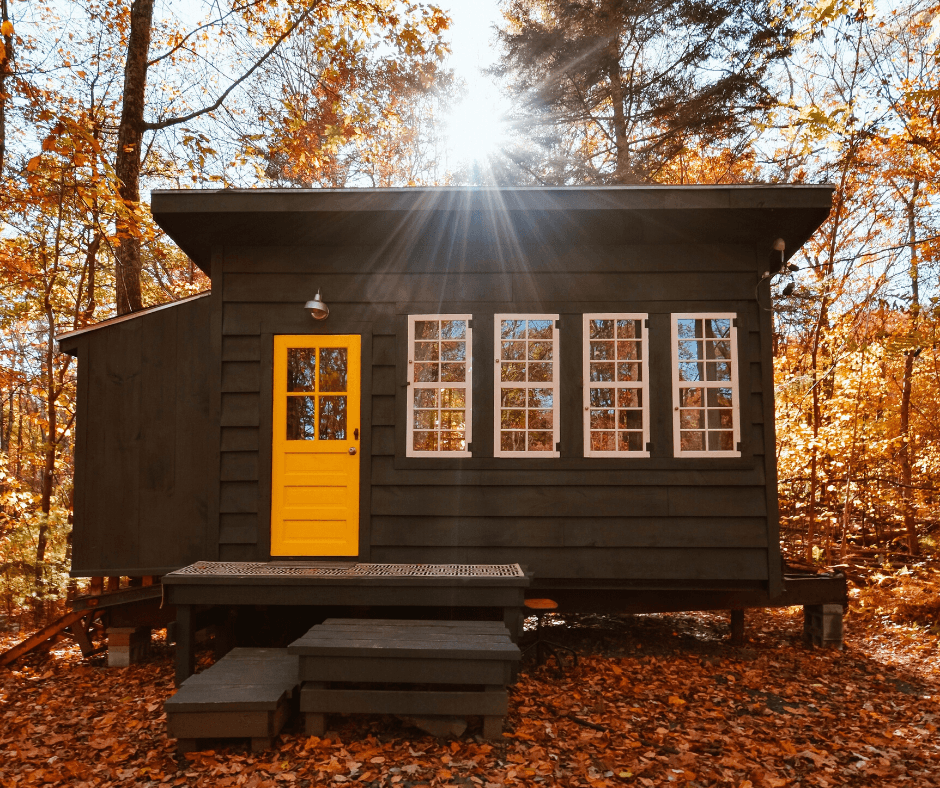
This article was first published by Unbound Northwest who I thank for supporting my work.
The digital nomad, RV, and tiny house lifestyles are appealing for many reasons. Those of us who’ve embraced these non-traditional ways of living and working have immediately experienced many rewards. While we often focus on the benefits, it’s important to acknowledge some of the challenges.
There’s a lot of information available about the logistical challenges: the passport process, compostable versus standard toilets, and where to stay for free or at low cost. What’s not talked about often enough are the challenges intimate partners face when moving from a relatively large shared space into a tiny one and how to navigate the relationship challenges it presents.
If you’re considering downsizing your space and upsizing your life, grab a stiff drink and pull up a chair.
If you think those of us who choose this lifestyle are crazy but want to keep reading for further proof, I must warn you. You may find yourself envying us and going to YouTube to binge-watch tiny home, van life, and RV living videos later tonight after your loved one goes to sleep.
Now, you probably wouldn’t even consider moving into such a small space if you didn’t feel that your relationship was on solid ground. And that’s good because living in close quarters doesn’t promote deeper intimacy (at first). It highlights the areas where you’re far apart and then forces you to look at and feel them.
Your partner likes to listen to music at twenty-four bars, but you prefer your for-the-love-of-Mike peace and quiet?
You’re a chipper early riser, but your spouse is a quiet, channel-flipping night owl?
You need to spread out and have papers and books or electronics and cords within easy reach because you’re “a creative,” but your partner is a neat freak who feels the uncontrollable urge to “organize” your stuff when you aren’t looking?
Neither of you like to wash dishes by hand but figured the other person hates it less and wouldn’t be able to stand it so they’d naturally adopt that chore in the absence of an automatic dishwasher but, noooo, they’re too stubborn?
Well, you’re going to feel lied to by all those glossy images and vlogs of “lifestyle entrepreneurs” with their Mason jar glasses, guitars, and smiling faces.
You’ll smile and try to be accommodating at first because neither one of you wants to admit that this move may have been the dumbest decision you’ve made since buying that puppy in the Cabela’s parking lot that one time. You’ll try to give each other space.
Except there is no space. No place noise can’t reach. No place light can’t reach. If you live in an RV, no place that doesn’t vibrate when someone walks or shifts positions in another “room.” You’ll become far more educated about your partner’s body rhythm than you ever thought possible. This will also inexplicably annoy you.
You’ll try to move away from the irritants but won’t be able to go far.
If you’re a get mad and storm out of the room kind of person, good luck. It really loses its impact when there are no doors to slam, spare rooms to sleep in, or friends or relatives to go stay with for the night.
You’re both just there staring at each other and marinating in mutual disdain. You’re stuck.
If there’s one thing confinement does it make you acutely aware of your thoughts. The thing about that is that confinement, the inability to change our situation, forces us to make a choice: self-destruct or change ourselves.
You’re likely to start seeing yourself in ways you never have. Your insecurities and immaturities will suddenly show themselves and nag at you. You’ll have gotten rid of most of your stuff, so there’ll be few things to distract you from them.
You may start to ask yourself what noise you’re trying to drown out by listening to music at scare-the-animals levels, why you can’t organize your life in a way that supports your needs without encroaching on others, why you can’t take six minutes once a day to enjoy a manual task that offers the visual reward of a job well done, why you’re staying awake or waking up after or before the person you love.
You’ll see yourself for what you are and your habits for what they are—good or bad for your relationship.
When you do and when you remember that it was your differences that first attracted you to each other and your shared values and love of adventure that made this move possible in the first place, the walls will stop closing in and the invisible distance between you and your partner will shrink.
Within a relatively short amount of time after surrendering your self-indulgent instincts to your higher self, you and your partner will settle into a rhythm that creates its own music at a level that’s pleasant for everyone and that integrates your patterns of work and life, the thing you got into this for in the first place.
And if you’re not careful, you’ll start referring to yourself as a lifestyle entrepreneur and find yourself encouraging others to join the less-is-more movement.
Photo by Andrea Davis on Unsplash
Cristen Iris
CI Communication Strategies
2019
